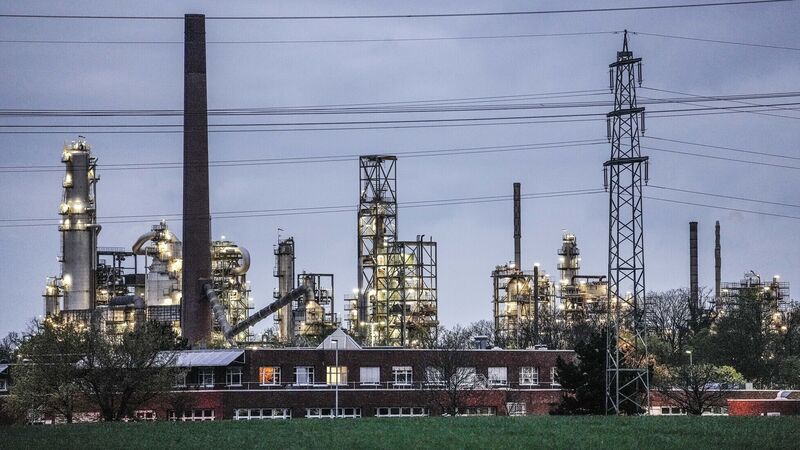Ireland will be 'fully exposed' to price hikes from Russian oil and gas embargo, says Ryan

A Shell chemical plant is illuminated in Wesseling, near Cologne. Germany now says it is ready to support a ban but has indicated a phase-in period is necessary. Picture: AP Photo/Martin Meissner, File)
Energy Minister Eamon Ryan has said Ireland will be fully exposed to price hikes if and when an oil and gas embargo is imposed on Russia.
The EU tonight warned member states to prepare for the possibility of a full disruption of Russian gas and oil by the Kremlin.














